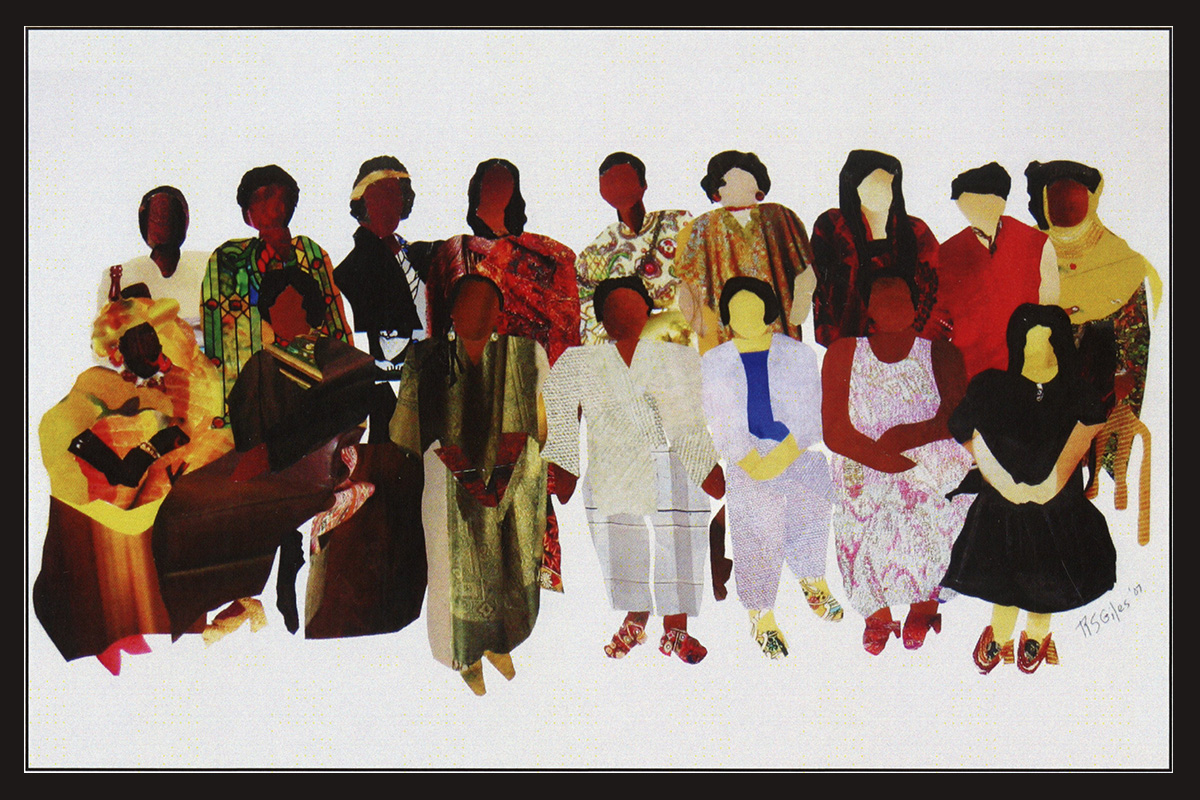Key points:
- Through its groundbreaking Women of Color Scholars program, the United Methodist Board of Higher Education and Ministry is transforming theological education.
- So far, the program has 55 graduates who now serve as United Methodist pastors, professors and university administrators around the globe.
- Graduates of the program are now helping current and future pastors serve increasingly diverse communities.
- The program came out of collaboration by United Methodist women.
Back in the early 1980s, the Rev. Kathy Sage would meet periodically with the handful of women administrators and faculty at United Methodist seminaries and ask them what they needed.
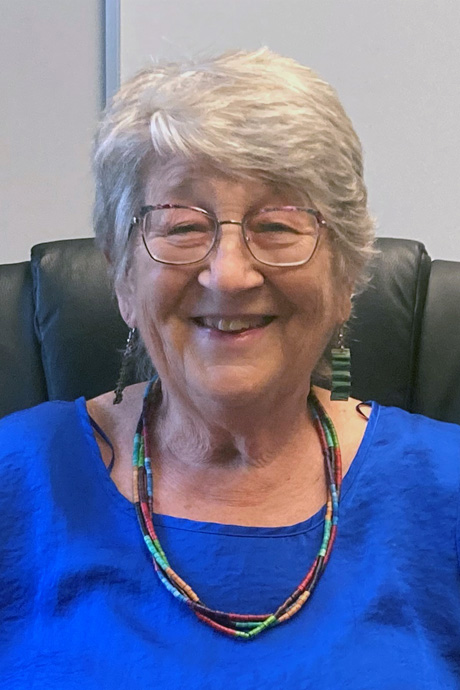
Photo by Heather Hahn, UM News.
One answer always came back the same, said Sage, who organized the meetings while on staff at the United Methodist Board of Higher Education and Ministry.
“They would say, ‘Kathy, make sure next time to tell the seminaries to send some women of color. We are a very white group. This isn’t right,’” she recalled.
Sage soon discovered that the seminaries had a very good reason for not hiring ordained United Methodist women of color with doctoral degrees. “There weren’t any,” she said.
Sage joined with Angella P. Current-Felder, who oversaw loans and scholarships at the Higher Education and Ministry agency, to change that statistic. Their work led to the agency’s creation of what is now named the Angella P. Current-Felder Women of Color Scholars program.
Since its founding in 1989, the program has celebrated 55 graduates. These scholars are now transforming United Methodist education around the globe, broadening their students’ perspectives and helping pastors reach an increasingly ethnically diverse mission field with the Gospel message.
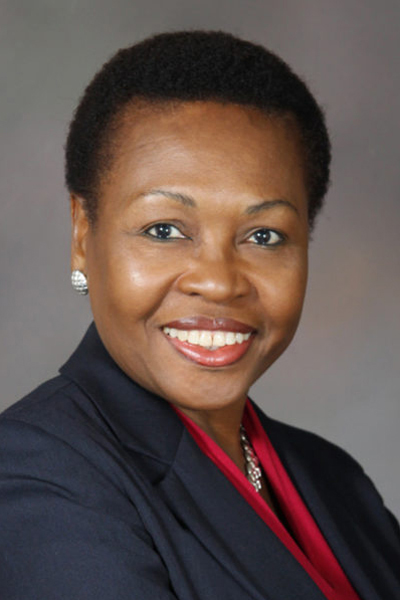
Photo courtesy of the United Methodist Board of Higher Education and Ministry.
“The United Methodist Church was a visionary leader among all Christian denominations when it established the Women of Color Scholars program,” said the Rev. Rosetta Ross, Ph.D., one of those graduates and professor of religious studies at Spelman College in Atlanta. She is also an ordained elder in the South Carolina Conference.
Back when the program began, Ross said, some expressed doubts that women of color had the capacity to complete doctoral studies in religion and theology.
Today, she said, the program’s graduates are among the chorus of voices “expanding our understanding of and appreciation for the rich and varied gifts of God to the world through human diversity.”
The program continues to thrive even at a time when some U.S. politicians and pundits are pushing back against efforts to promote ethnic diversity in any field. Currently nine scholars are receiving scholarships and mentoring through the program, which receives funding through an endowment.
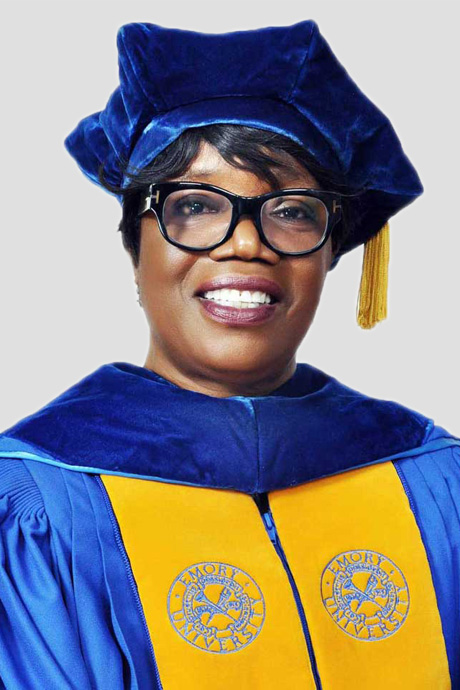
Photo courtesy of African Universities.
Higher Education and Ministry remains committed to the initiative, said the Rev. Shannon Conklin-Miller, the agency’s connectional relations officer.
“It rose out of listening to the experience of women of color and working alongside them to develop solutions for the challenges that they face in living out their vocation to education and ministry,” Conklin-Miller said. “These scholars have had a profound impact on both the academy and the church.”
The Rev. Yar Donlah Gonway-Gono, Ph.D., the first woman to be president of United Methodist University in Monrovia, Liberia, is a Woman of Color Scholar.
Growing up in Liberia, she said formal education for girls was not a priority and women were often encouraged to suppress their thoughts. The scholarship program not only made it economically feasible for her to complete her doctoral studies at United Methodist-related Emory University but empowered her as well.
The program, she said, “challenged me to be resilient, bold, courageous, liberated, have a voice and articulate without fear, define who I was rather than people defining me.”
Her Ph.D. research focused on three generations of Liberian women. She said she learned leadership skills that she currently uses to mentor other women. Before leading United Methodist University, she also established a community college in her home county.
Sage, whose job at Higher Education and Ministry included supporting clergywomen in their ministry, noted that women preachers have been part of Methodism since its earliest days. Ironically, she added, United Methodist women’s success in the pulpit actually contributed to their shortage in the academy.
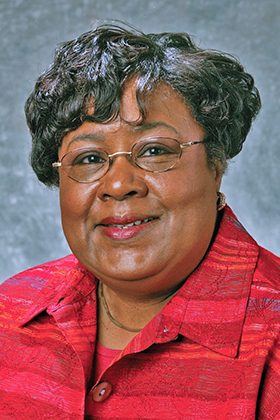
Photo courtesy of Higher Education and Ministry.
“One reason there were fewer women — white or women of color — with Ph.D.s is because our women could go be in churches,” she said. “What are you going to do if you’re bright, and you’ve got your M.Div., and your church won’t put you in a church? You’re going to go get a Ph.D. That’s why there are so many Catholic women with Ph.D.s.”
Still, Sage and Current-Felder could see the growing interest among United Methodist women in pursuing religious scholarship and shaping theological education.
In 1984, the Rev. Karen Y. Collier — the first Black woman ordained in the Tennessee Conference and a fellow United Methodist agency staff member — became the first United Methodist clergywoman of color to earn a Ph.D. She earned her degree in church history from United Methodist-related Duke University.
She eventually became a professor and chair of the Department of Religious and Philosophical Studies at Fisk University. But before that, Collier — who died earlier this year at the age of 73 — joined Sage and Current-Felder in getting the Women of Color Scholars program off the ground.
The three knew they were on the right track at the first convocation of United Methodist Black clergywomen in June 1987, a meeting Sage helped organize. There, the gathered clergywomen shared their hopes for creating a pool of scholars to fill the void in U.S. seminaries and theological schools.
Collier also helped lead a workshop on theological education. One of her co-leaders was the late Bishop Leontyne Turpeau Current Kelly, Current-Felder’s mother, who in 1984 became the first Black woman elected a United Methodist bishop.
With the success of that workshop, the work began in earnest to establish the scholarship program. Sage guided the process and got buy-in from Higher Education and Ministry leadership, Current-Felder led the way in applying for grant money and Collier convened the program’s mentors.
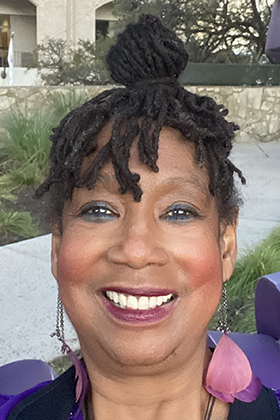
Photo courtesy of Thomas.
Graduates acknowledged that the scholarship funds made their education possible. Women of Color Scholars receive between $3,000 and $10,000 a year for their doctoral studies. But graduates say the program’s key innovation is that it provides mentors for them as they pursue their studies and embark on their academic careers.
Gonway-Gono of Liberia said the trailblazing women scholars who served as mentors played a pivotal role in her life and education. “They took the initiative to counsel, encourage and motivate me by their stories,” she said. “In their stories, I was empowered and affirmed.”
The Rev. Linda E. Thomas, Ph.D., who was at the Black clergywomen’s convocation, helped draft the proposal that led to the program's creation. She was part of the first class of Women of Color Scholars and eventually became a mentor herself. She said the program was rigorous. Scholars had to reapply every year, and the mentoring with other scholars of color was not optional.
“If you didn’t get the mentoring, then you didn’t get the money,” said Thomas, who is now professor of theology and anthropology at the Lutheran School of Theology in Chicago. She is also director of the school’s Center for Intersectionality Studies.
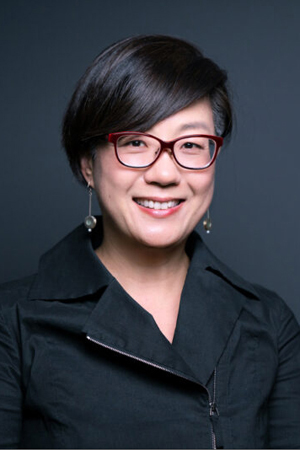
Photo courtesy of Garrett-Evangelical Theological Seminary.
“It was so great to see other people like myself in a room together,” she said.
The program’s graduates are now helping their students — who are often future pastors and denominational leaders — to think about their ministry and familiar Bible stories in fresh ways.
Wonhee Anne Joh, Ph.D., is helping her students think about what truly decolonizing Christianity might look like. She is the Harry R. Kendall Professor of Christian Theology and Postcolonial Studies at Garrett-Evangelical Theological Seminary in Evanston, Illinois. She also directs the United Methodist seminary’s Ph.D. program.
“When we do a regular theology course, it’s unspoken and it’s not written on the syllabus, but it’s really a European theology that is presumed to be universal,” she said.
As an Asian American scholar, she helps students challenge their assumptions. “Decolonization is really about unlearning, for both sides — the colonizers and the colonized,” she said.
The Rev. Traci C. West, Ph.D., in her studies, looked at how the church responds to intimate violence against Black women. In her own ministry as an ordained elder in the New York Conference, she saw the need for more pastoral resources.
Now she is professor of Christian ethics and African American studies at United Methodist-related Drew University Theological School in Madison, New Jersey, and she is helping her students grapple with how to address violence, sexism and racism wherever they serve.
The Women of Color Scholarship Program, she said, supported her and created a place of encouragement to do this work.
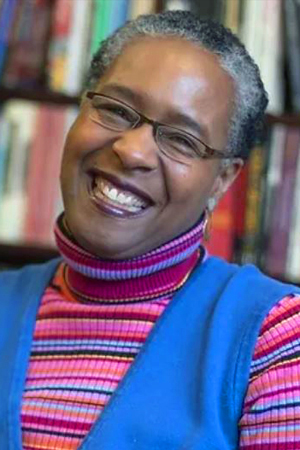
Photo courtesy of West.
“Very specifically, it is set up to say what the perspective that I was bringing was needed by both the church and the academy,” she said.
Current-Felder, who became Higher Education and Ministry's point person on the program until her retirement in 2010, said these women's voices are vital to the denomination's future.
“Without them, many students would have little understanding of the perspectives of people of color in our church," she told Higher Education and Ministry. For her tireless efforts, the agency named the program in Current-Felder's honor in 2020.
Both Sage and Current-Felder are now retired, and they are excited to see Women of Color Scholars now making their mark in multiple settings and sharing their gifts with new generations.
Sage has heard from Higher Education and Ministry about Elyse Ambrose, who as a seminary student served as a research assistant to two professors who were involved in the Women of Color Scholars program. One of those professors was Rosetta Ross.
Ambrose went on to earn a Ph.D. from Drew University and become the program's 48th graduate. The Christian ethicist is preparing for next year's publication of her first book.
“She sees a woman, a professor and mentor who got a Ph.D. through the program,” Sage said, “and then she thinks, ‘Yeah, oh, maybe I can do that.’”
Help for a growing program
Women of Color Scholars will be on hand when the American Academy of Religion and Society of Biblical Literature meet Nov. 18-21 in San Antonio.
As part of the gathering, the United Methodist Board of Higher Education and Ministry plans to have a dinner for the scholars and supports of the program at 6 to 8 p.m. U.S. Central time Nov. 18 at the Westin Riverwalk. The theme of the event will be “Weaving into the Future.”
The Women of Color Scholars program is supported through an endowed fund, and Higher Education and Ministry always welcomes donations.
People can give to the “Angella Current-Felder Women of Color Scholars Program” here or send a check to: GBHEM Women of Color Scholarship, P.O. Box 440102, Nashville, TN 37244-0102.
Read more about the program.
Hahn is assistant news editor for UM News. Contact her at (615) 742-5470 or newsdesk@umcom.org. To read more United Methodist news, subscribe to the free Daily or Friday Digests.

